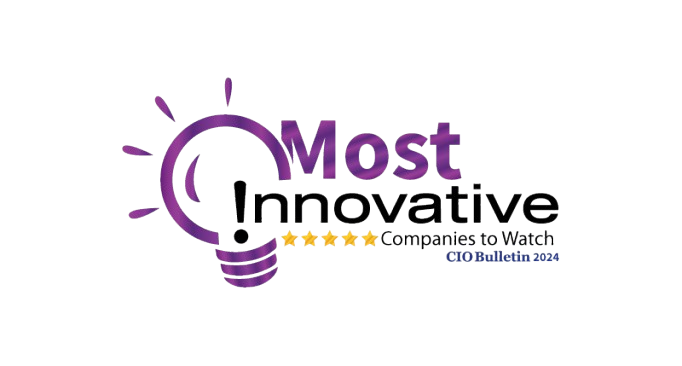Leveraging HubSpot For Webinars And Virtual Events
August 16, 2022
The world has gone through a major shift since 2020. Going through a catastrophic pandemic has changed the way to use digital platforms. While digitization was already on the rise, the COVID crisis made us all take a leap no one anticipated. Webinars and virtual events are a major part of this change.
When the world was in lockdown, businesses were finding it difficult to reach out to their audience and engage them. All physical events and seminars came to a standstill as people were not stepping out of their houses. However, it wasn’t feasible for companies to shut down their operations and refrain from interacting with their audiences for over a year.
This led to the increasing prominence of virtual events. As people were already consuming content at home and working remotely, webinars found a way to combine the two aspects to keep people engaged. As schools and colleges started online lectures, organizations around the world started hosting webinars and virtual events. Taking place on online collaborative platforms like Zoom, Microsoft Teams, Google Meet, etc., these events attempted to engage the audience from their homes while keeping their essence and motto intact.
Now that the COVID crisis has subsided and businesses have started getting back on track, webinars and virtual events continue. The ability to conduct virtual events and being able to draw the attention of thousands of audience members at once have inspired companies to continue such events in the post-pandemic world as well.
Why Are Webinars And Virtual Events Successful?
Before discussing the tips for leveraging webinars and virtual events, let us understand why they have been so successful around the world:
No Geographical Boundaries
One of the biggest benefits of virtual events is that they surpass all geographical barriers. A webinar allows professionals sitting in India to attend a live lecture given by an expert in Germany. Naturally, this wasn’t possible in the case of in-person events and seminars. Virtual events have opened up the gates for endless opportunities for conducting stimulating events around the world.
Easy Access
As compared to attending a seminar or an on-premise event, webinars and virtual events are extremely easy to attend. All you need to do is open a meeting link, watch a live YouTube video, or visit the social media account of the organizer to attend an online event. The low-effort attending of such events persuades more people to show up.
Wider Reach
When it comes to the internet, there is no limit to the number of people you can reach out to. Webinars and virtual events allow businesses to reach out to a wide range of prospects and customers around the world. For example, organizing an online launch event for a new car would help an automobile company gather exponentially more audience members as compared to gathering them on-premise.
Leveraging HubSpot For Webinars And Virtual Events
HubSpot has been helping businesses leverage their marketing, sales, and customer service processes for several years. You can use the CRM platform to enhance webinars and virtual events. Right from spreading awareness about the event to selling tickets, it helps you manage a range of different processes throughout the course of your online event.
With the help of HubSpot, you can reach out to your audience to market your virtual event, manage the event, and analyze the traction you received from the same. Using the right HubSpot tools and features would help you manage your virtual events with ease and efficiency.
Here are some of the most important things to keep in mind while leveraging HubSpot for webinars and virtual events:
Know What The Audience Wants To See
Before you start organizing and marketing a virtual event, clearly define what your audience is willing to see. The most important difference between an in-person event and a virtual event is that the latter provides an option for the audience to switch to something else within seconds. As the organizer of a virtual event, you need to put on a show that is too engaging for your audience to turn away from.
The “close” button on the top of your audience’s screen is your biggest enemy. To organize a wholesome online event, it is important to know what your audience wants. Understand the pulse of the audience you cater to. HubSpot provides you with extensive reports that show the needs, preferences, and interests of your audience. Use these details to create the theme of your event. If you are planning to host a webinar, know what your audience wants to learn more about and what your customers are interested in. This would naturally attract your audience before you start marketing the event.
Use The Right Channels To Market The Event
HubSpot allows you to market your offerings across a variety of different channels, such as email, web, social media, and more. Depending on the kind of event you are organizing, use the marketing channel that best suits the case. For example, if you are planning to go live on YouTube, share the link to the video on emails, social media posts, and text messages.
If you are hosting a webinar where the audience is paying money, make sure you create a list of the attendees (just like you would create a list of email subscribers) use HubSpot to send them personalized emails regarding the details of the event. Following a personalized approach here would make your audience members feel special and give them their money’s worth.
Ask For Feedback
Although we are moving away from the pandemic, the trend of webinars and virtual events is here to stay. Asking for honest feedback from your audience allows you to improve the events you are likely to organize in the future.
Based on your preferences, you can send well-drafted forms or simple emails to the attendees asking for their honest feedback. Record the responses and use them to obtain valuable insights. These insights would help you in understanding the areas where you went wrong and the aspects that managed to strike the right chords.
Keep Track Of Your Marketing Tactics
Virtual events often call for highly effective marketing, especially if they are free to attend. Always keep in mind that your audience already has a lot of other options online and it is your job to bring them to your event. As you market your event, keep track of your marketing tactics and analyze the results you achieve.
Take into consideration factors like the marketing channels used, the content generated, the CTAs used, the queries received, the engagement on social media, and the footfall you managed to generate. These metrics would help you understand the marketing tactics that work and the ones that you need to work on. Hosting webinars and virtual events is still a relatively new way of engaging your target audience and needs to be analyzed thoroughly.
The Final Word
If you are planning to host a webinar or a virtual event, you can rest assured that HubSpot would help you handle multiple aspects of the event as per your requirements. If used well, the CRM platform would get you the traction and generate the engagement you have been looking for.
Featured Resources
Check Our Latest Resources

Proven ROI has been recognized as one of the Most Innovative Companies to Watch 2024 by CIO Bulletin—a testament to the company’s forward-thinking approach to CRM investments and strategic partnerships. By working closely with leading CRM platforms like HubSpot, Proven ROI is revolutionizing how businesses manage customer relationships, scale their operations, and drive growth.



